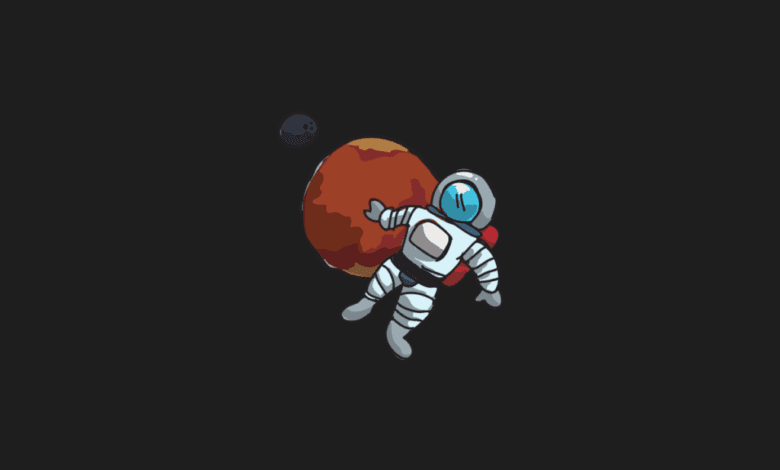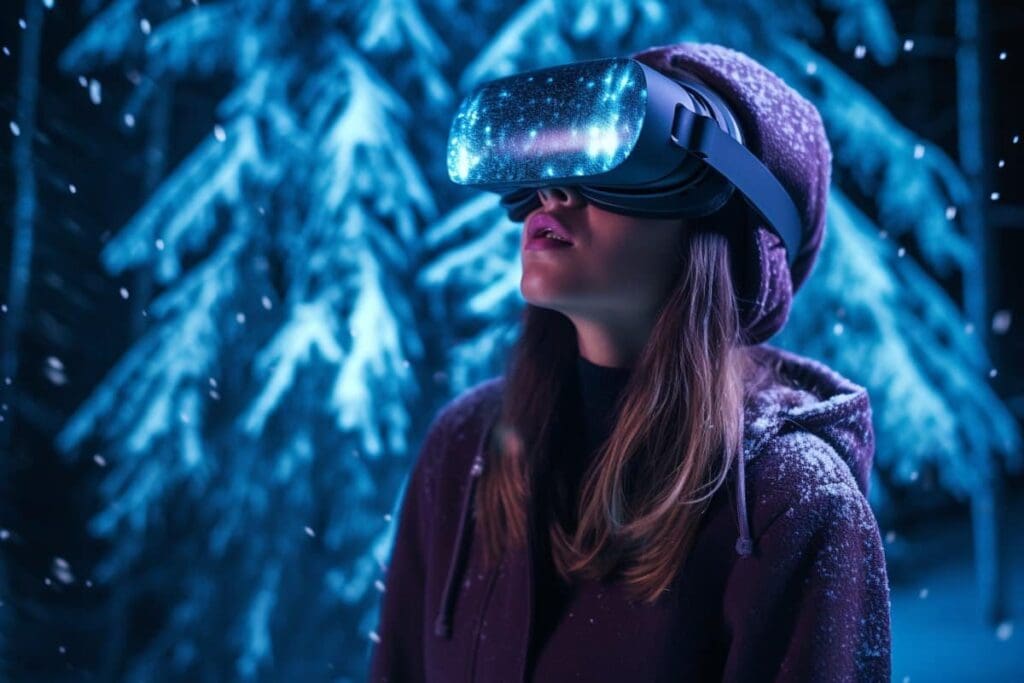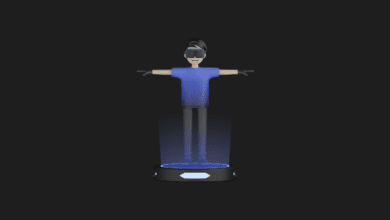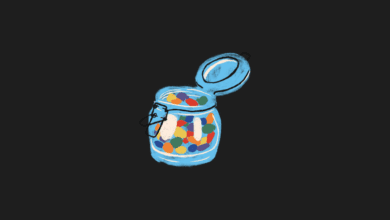Experiencing the Coldness of the Metaverse Refrigerator

In the near future, technology will incorporate the sense of touch, allowing users to even feel the cold temperature of a refrigerator, according to Burak Soylu, Founder and CEO of GoArt Metaverse. He mentioned, “Soon, you’ll be able to experience the coldness of the refrigerator. Wearable technologies are advancing rapidly.”
Soylu also stated that associating the metaverse solely with Meta’s owner, Mark Zuckerberg, is inaccurate.
Addressing the recent decline in the metaverse’s popularity, Soylu remarked, “I believe the Metaverse is entering a much better phase. The weaker links have been removed. Those who were merely curious have looked and left, which is beneficial. Those who truly grasp this concept and are committed to advancing technology are continuing their journey.”
Highlighting the importance of understanding Blockchain and NFTs to fully grasp the Metaverse, Soylu said, “Blockchain has promised people ownership in the digital world. Unfortunately, some well-intentioned people have been misled. Such misuse is common in emerging industries. However, you wouldn’t blame gold or the jeweler just because fake gold exists.”
“In a world parallel to ours, we envision a universe where our avatars take center stage.”
Soylu clarified that the metaverse is not just a real estate project, criticizing those who misunderstand the concept as trying to profit superficially. He explained, “Just like states possess territorial waters, they will also have a ‘digital shelf.’ Thus, purchasing land on New York’s 5th Avenue via the metaverse isn’t feasible. We’re imagining a universe parallel to ours where our avatars are the protagonists. Everything we do here, such as eating and drinking, can be done in that universe without limitations. Incorporating the sense of touch into technology will soon be a reality. This means you can craft a superior identity in the universe, embodying whatever you desire through your avatar. The era when users were at the service of platforms is ending. Communities are now questioning platforms about their offerings, which I believe is a very pertinent inquiry.”
Discussing the impact of the Metaverse on e-commerce, Soylu noted that the world’s current GDP is around 100 trillion dollars, with a quarter of it circulating in e-commerce.
Highlighting the shift in e-commerce habits, Soylu observed, “We’re looking at 25 trillion dollars here. Everyone who insisted on seeing products in-store before purchasing a decade ago now shops online.”
“We are moving to a three-dimensional world”

GoArt Metaverse Founder and CEO Burak Soylu discussed the transition from current e-commerce experiences to those offered by the metaverse, stating:
“Currently, we interact with two-dimensional screens, whether it’s a television, tablet, or phone screen. However, we are moving towards a three-dimensional world, which significantly enhances the shopping experience for consumers.
For instance, consider the process of buying a refrigerator. Visiting a store requires a considerable effort and time, hence the preference for online purchases. You may like a refrigerator online, but wouldn’t you want to open the door and peek inside? The metaverse will enable you to do this from your seat. In the near future, you’ll even be able to feel the coldness of the refrigerator, thanks to rapidly developing wearable technologies. Silicon Valley is abuzz about these advancements.
Retaining consumer attention on an online platform is challenging. A simple notification on your phone can easily divert your attention. The metaverse, however, offers such high visual standards in its presentations that users are reluctant to leave. Interruptions like a message appearing on the screen can disrupt the experience, leading to lower bounce rates in Web3 compared to Web2. On GoArt, users spend an average of 40 minutes within the universe, a feat nearly impossible to achieve on any traditional e-commerce site.”
“The primary sectors to benefit from the metaverse’s economic impact include e-commerce and retail, tourism and culture, education, gaming, and e-sports.”
Soylu also provided insights into the anticipated economic scale of the metaverse globally and in Turkey. According to a report by CITI last April, the total volume of the metaverse is expected to range between $8 trillion and $13 trillion by 2030.
He mentioned that the metaverse is projected to reach 5 billion users, clarifying that these estimates consider not only VR headsets but also the mobile base, as the figure would not surpass 1 billion otherwise.
Highlighting that the metaverse will be accessible via desktop computers, game consoles, and mobile phones, Soylu shared:
“According to Deloitte’s Potential Value of the Metaverse research for Turkey, which examines the possible economic, social, and environmental impacts of the metaverse ecosystem on Turkey, the metaverse’s potential economic contribution to Turkey could be between $19.9 billion and $37.5 billion by 2035. This represents 1.3 to 2.4 percent of Turkey’s projected GDP for 2035. The sectors expected to benefit the most from this economic impact are e-commerce and retail, tourism and culture, education, and gaming, as well as e-sports.”










